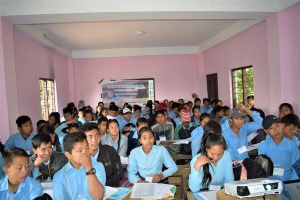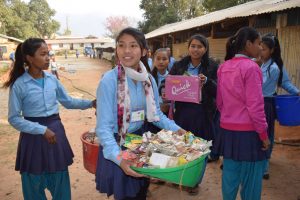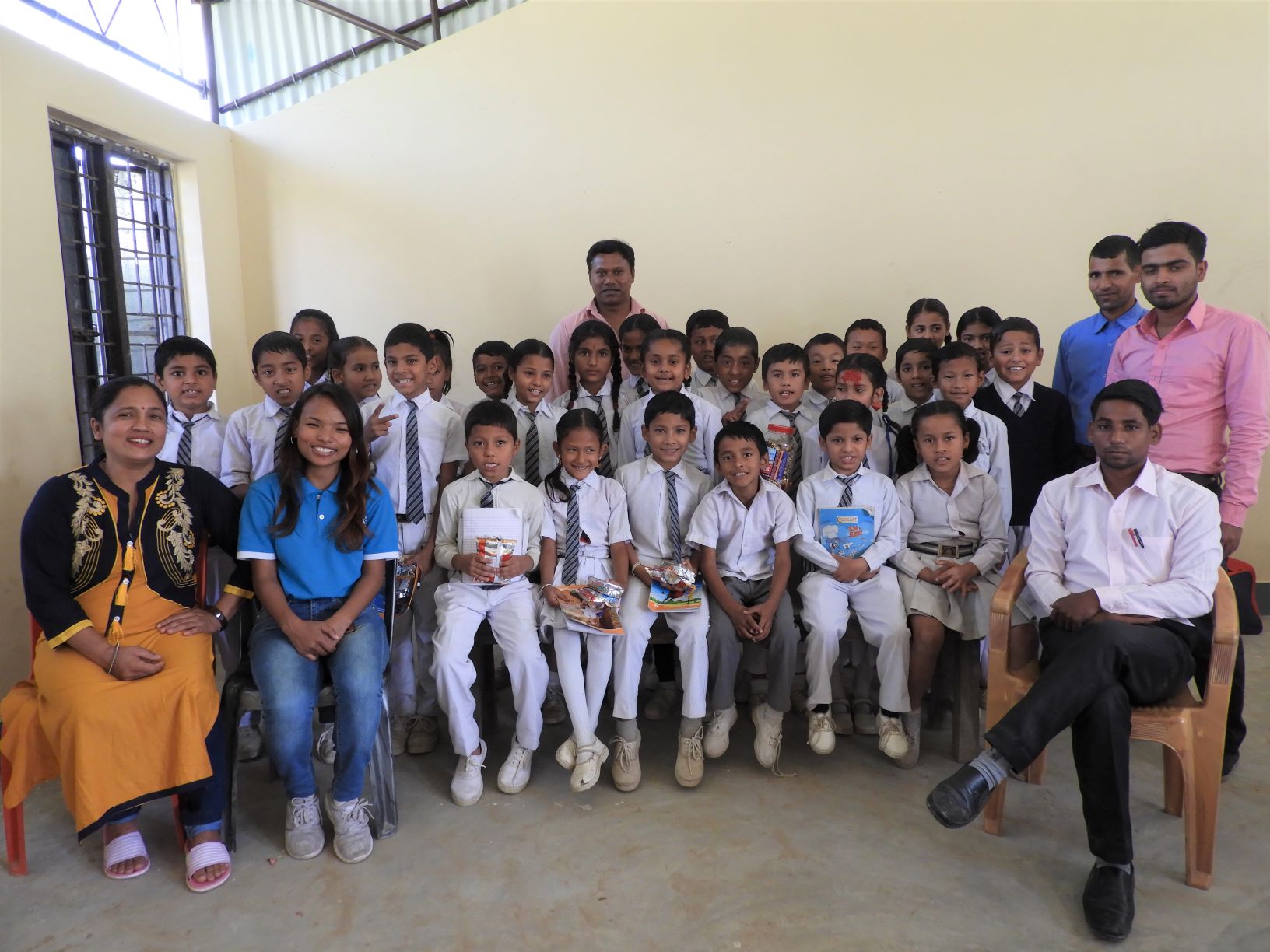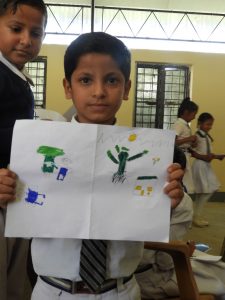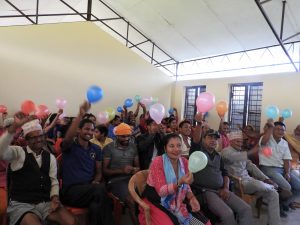Shree Mahendra Ratna Basic School is located at Gangajamuna rural municipality ward no. 7, Budhathum, Dhading. After massive earthquake, school was destructed and students had to study in a Temporary Learning Center. After evaluating needs of the school, NJSI made 4 classroom building and provided well-furnished furniture to the school.
On 21st December, 2018 team of NJSI went to the site for handover ceremony. The program took place in the presence of Chairman of the ward, Mr. Menn Adhikari and a representative from education and sports ministry, Mr. Babu Krishna Shrestha. It was long yet successful program followed by unique song dance and parade by students. Social audit was also done on the occasion of handover ceremony among all the beneficiaries.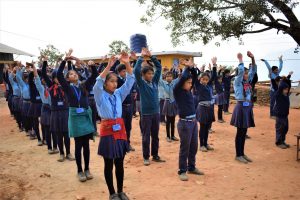
Everyone was satisfied by the construction of the building. Pitam Dahal, teacher of the school stated that the students were facing difficulty in Temporary Learning Center (TLC) as they were staying in a very congested manner and weather wise also it was not favorable to the students. They were happy and grateful towards NJSI for constructing a well-furnished building.

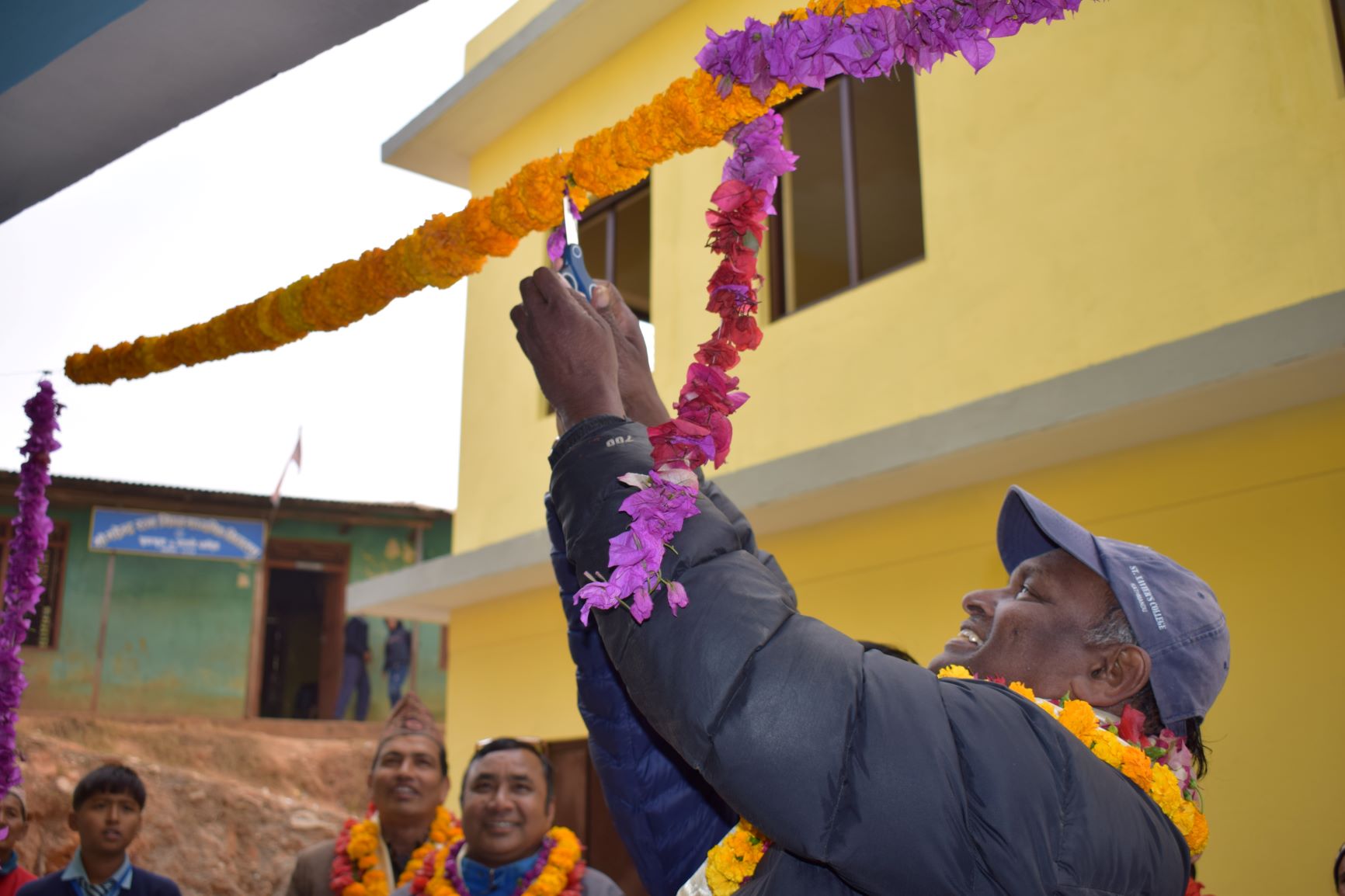
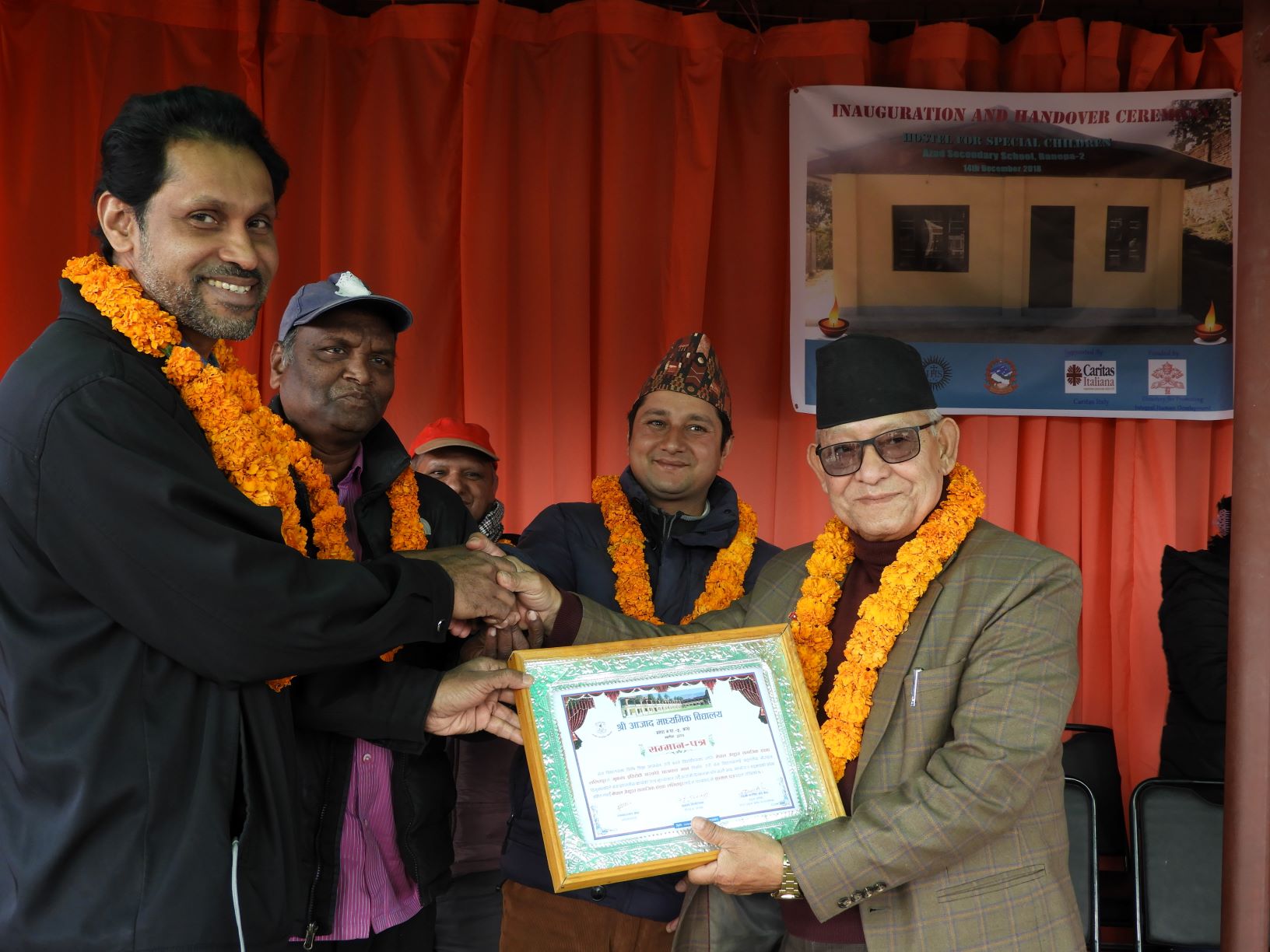
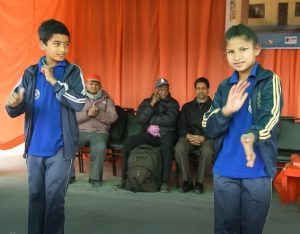
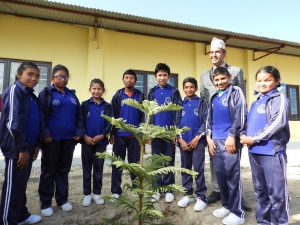 On 14th of December 2018, an official handover ceremony of the hostel in the presence of the beneficiary students, their parents, Azad school students, and govt. officials and teaching staff was conducted. The event continued with speeches from the chairperson of the program, SMC chairperson, Mayor, Fr. Roy, Fr. Arul, the Principal and a guardian. One of the student also expressed vote of thanks using sign language which was pretty impressive. At last the mayor cut the ribbon and NJSI handed over the keys to the school management committee. The best part of the event was two deaf children dancing on an audible song. They learnt the dance step using sign language.
On 14th of December 2018, an official handover ceremony of the hostel in the presence of the beneficiary students, their parents, Azad school students, and govt. officials and teaching staff was conducted. The event continued with speeches from the chairperson of the program, SMC chairperson, Mayor, Fr. Roy, Fr. Arul, the Principal and a guardian. One of the student also expressed vote of thanks using sign language which was pretty impressive. At last the mayor cut the ribbon and NJSI handed over the keys to the school management committee. The best part of the event was two deaf children dancing on an audible song. They learnt the dance step using sign language.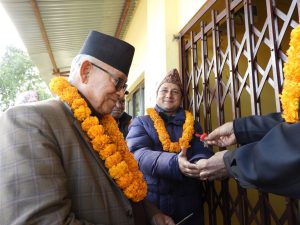 The Students were very happy to have a new hostel and so were the teachers. In their previous hostel, they did not have a good place. They barely had space to move around. But now, after getting a new huge space to live and perform their daily activities, they promised that they will take care of it. Even all the guests who visited the hostel shared their appreciative words towards NJSI.
The Students were very happy to have a new hostel and so were the teachers. In their previous hostel, they did not have a good place. They barely had space to move around. But now, after getting a new huge space to live and perform their daily activities, they promised that they will take care of it. Even all the guests who visited the hostel shared their appreciative words towards NJSI.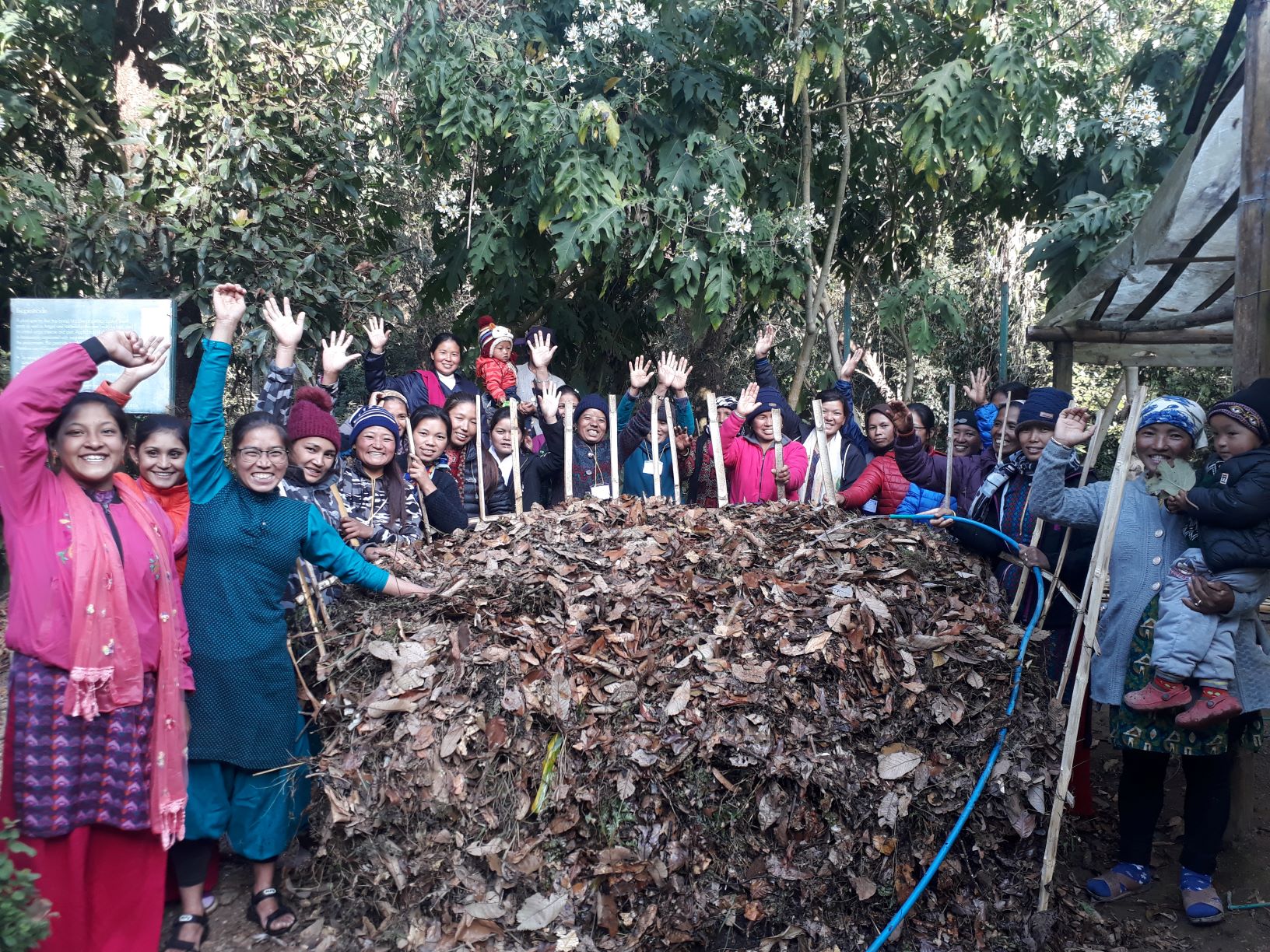
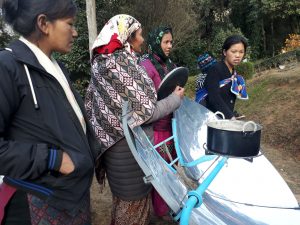
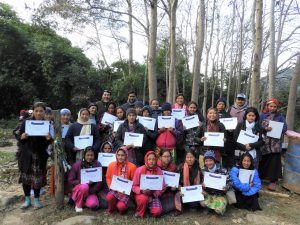 The participants responded positively and they were responsive throughout the training. They were making promises that they will start using the learnt technique soon after they reach the village. Happiness was seen in their faces as they get to learn new things for improving their lifestyle.
The participants responded positively and they were responsive throughout the training. They were making promises that they will start using the learnt technique soon after they reach the village. Happiness was seen in their faces as they get to learn new things for improving their lifestyle.
